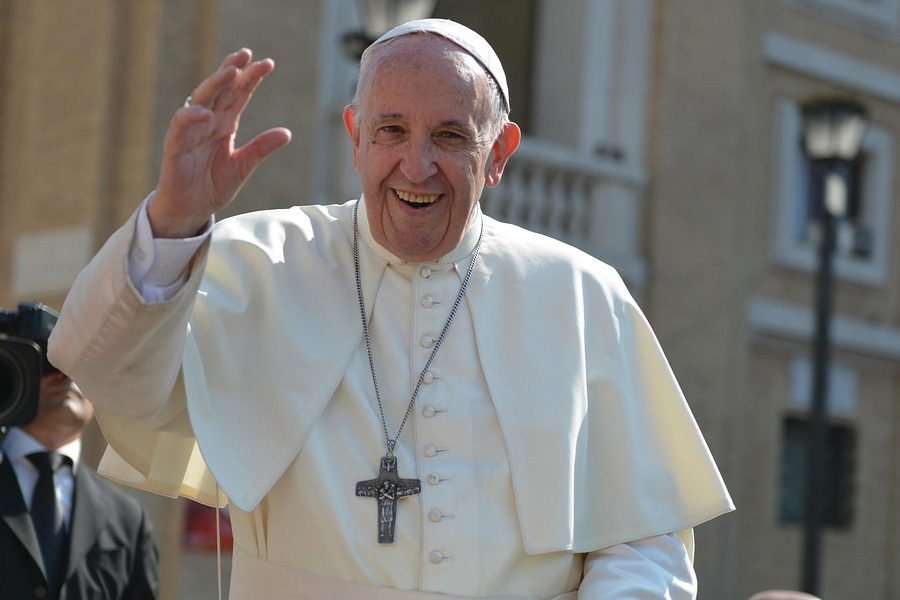 Our spiritual lives are formed by a combination of what we experience through our interactions with persons of faith; what we learn from our Roman Catholic Tradition; and what comes as we mature in the faith and develop in our relationship with God. Over time we learn to pray and if we are faithful to cultivating our spiritual lives, we grow closer to the Lord and prayer comes naturally as it becomes an integral part of who we are as the children of God.
Our spiritual lives are formed by a combination of what we experience through our interactions with persons of faith; what we learn from our Roman Catholic Tradition; and what comes as we mature in the faith and develop in our relationship with God. Over time we learn to pray and if we are faithful to cultivating our spiritual lives, we grow closer to the Lord and prayer comes naturally as it becomes an integral part of who we are as the children of God.
As a child, I attended Mass each Sunday with my grandparents and great-grandmother. My earliest memory of prayer is watching my great-grandmother silently, yet faithfully, moving her fingers along those crystal beads as we waited for Mass to begin. As I watched her pray, I wondered what she was saying to herself. I listened to her whispered prayers in Italian and I realized, in my innocent youthfulness, that she was intimately engaged with the sacred.
In high school, my freshman year theology teacher gave our class a definition of prayer that continues to define my spiritual life to this day. Mr. Bourdeau had us write in our spiral notebooks that “prayer is a conversation with God.” My great-grandmother was having a conversation with God as she uttered the assigned prayer on each of her Rosary beads. My spiritual life began to form. I was starting to learn from my interactions with others how to pray and what it meant to become a person of prayer. God was guiding me through others to the beginnings of union with Him and now I was learning the words that would lead to our personal and intimate conversation.
My conversation with God has taken many twists and turns over the years. There have been days when I heard the voice of God with perfect clarity and other days when I felt so alone that the terrifying silence convinced me that God had indeed abandoned me. My conversation with God has involved praying for my “enemies,” those men and women who have hurt me deeply and who in turn I, have no doubt, hurt in return. My conversation with God has been brief and lengthy, marked with tears and profound awe and filled with lists of requests for everyone’s needs but my own. My conversation with God has humbled me, reminded me of my many flaws and challenged me to constantly strive to be a little better each day. My conversation with God has been imperfect as I struggled to find what I thought were the right words and in the end, despite what I said or failed to say, made me more and more aware of the unconditional love that God has for me.
How I speak to God comes from being formed by my Roman Catholic faith. I spent the entirety of my youth attending Catholic schools. My grammar school was staffed by the Daughters of Wisdom, who were my first teachers in the faith and examples of how our spiritual lives inform our day-to-day living. In high school, the Brothers of Holy Cross helped me listen more attentively to God’s voice, which often involved muting my own so that God could be heard. I learned the treasury of prayers that still bring me comfort when what I try to say proves inadequate. Prayer began to show me who I was to become as one who professed the faith. The development of my spiritual life began to make sense. Prayer was suddenly becoming about more than words as it took life, involved others and found the voice of God telling me that our conversation meant seeing beyond myself and recognizing that my prayer must include members of the world and Church communities to which I belonged.
In addition to learning about prayer from the living, we also have the witness of our ancestors in the faith. I have always been in awe of, and mesmerized by, the lives of the saints who teach us much about holiness. I hear their conversations with God ringing in my ears as I read the stories of martyrdom, as well as the sermons of some of the Church’s revered bishops and popes of years past.
My heart races as I place myself in the cell with St. Maximilian Kolbe, who gave his life in order to save another from death in the concentration camp and I see in his example the beauty of his life of prayer compelling me to put my faith into action. I continue to learn about obedience through the prayer and example of our Blessed Mother, Mary; I find myself challenged to grow in empathy through the lived prayer of St. Francis of Assisi; and I see myself maturing in my relationship with the Lord as I allow my favorite saint, St. Anthony of Padua, to inspire me as I continue to learn more about his holy life.
We develop our spiritual lives over the entirety of our lives. We should find time each day to have those intimate and important conversations with God. Our prayer need not be long, but it must be. If we fail to pray, we make a conscious choice to stop talking to God and, in turn, we stop listening to our Lord who yearns to talk to us each day. To pray means opening our hearts to the Lord and allowing our souls to be purified in that blessed moment.
Prayer is indeed a conversation with God that leads to a friendship with Him who created us, loves us and wants to hear what is in the depths of our hearts. As St. Isidore said so beautifully in “The Book of Maxims,” “if (we) want to be always in God’s company, (we) must pray regularly (for) when we pray, we talk to God.”
Rev. John M. Santone, C.S.C., is the adjutant judicial vicar of the Diocese of Fort Wayne-South Bend in Indiana. He was ordained on June 10, 2000, and earned his degree in canon law from the Angelicum University in Rome. Since ordination, he has served in parish ministry in Massachusetts, Connecticut and Indiana, while serving as a judge on the Marriage Tribunals of the Diocese of Fall River, Mass.; the Archdiocese of Hartford, Conn.; and the Diocese of Fort Wayne-South Bend.



